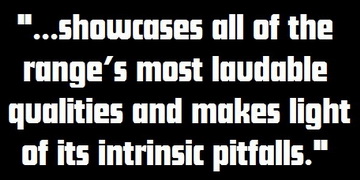|
| ||
|
WRITTEN BY JACQUELINE RAYNER
DIRECTED BY NIGEL FAIRS
RECOMMENDED PURCHASE BIG FINISH 'COMPANION CHRONICLES' CD 3.7 (ISBN 1-84435-356-9) RELEASED IN JANUARY 2009.
BLURBThe year is
1770, and daring explorer
Captain James Cook and his crew on the Endeavour are navigating the
Pacific Ocean. |
| |
|
|
|
|
|
The Transit of Venus JANUARY 2009 (2 EPISODES)
1. VOYAGE OF DISCOVERY 2. DANGEROUS ENDEAVOURS
I’m very surprised that fourteen Companion Chronicles came and went before Big Finish Productions turned to the stalwart William Russell – the original hero of Doctor Who - to narrate one of Ian Chesterton’s unseen adventures. With a number of very highly regarded audio books already under his belt, not to mention an impressive turn in the 2005 audio drama, The Game, he seemed an obvious choice. Happily though, he was well worth waiting for.
The Transit of Venus is a real gem of a tale; one that manages to recreate the distinguishing spirit of Doctor Who’s first season, whilst at the same time telling a modern, compelling and relatively fast-paced story. As script editor of the range, Jacqueline Rayner was better placed than anyone to cut straight to the heart of what these Companion Chronicles are all about; something that I feel is reflected by her succinct bookends. Rayner does not waste words painting a future for Ian that we already know about anyway – she simply presents us with an old man telling a story; a story that left a mark on him.
Furthermore, this two-part adventure is incredibly evocative. I got the firm impression from listening to it that Rayner had put a tremendous amount of thought into the feel of the piece, as opposed to just the nuts and bolts of it. It would have been simple for her to just tack on a couple of individual episode titles and a throw in a reference or two to The Sensorites and be done with it, but every facet of The Transit of Venus seems to have been borne out of a desire to recreate the show’s early magic. Even the title fulfils the series’ original remit of educating and informing – I don’t know about you, but I breathed a sigh of relief when Ian explained what a “Transit of Venus” is just a few lines into the production.
However, the heavy (and I dare say fanciful) continuity is sure to inflame a few listeners, but for me the direct positioning of this tale between The Sensorites and The Reign of Terror only made it feel all the more redolent – after all, each story in the first season bled straight into the next – and in any event it’s a necessary conceit here as Rayner’s plot hangs on the propinquity of the events on the Sense-Sphere.
What I particularly like about this story though is that it doesn’t just limit itself to being about Ian. Though naturally Ian is at the heart of the tale and carries the responsibility of driving the narrative forward, Rayner also takes the time to explore interesting new aspects of the first Doctor’s personality (he even sheds a tear, at one point, when he believes that Susan is lost to him) and she manages to say so much about Barbara (and, indeed, Barbara and Ian as a double-act) without ever really using her.
Altogether then, The Transit of Venus is a standout release; one
that showcases all of the range’s most laudable qualities and makes light
of its intrinsic pitfalls. Rayner’s script is well-researched, educational
and engaging and, of course, Russell was never going to go wrong with
material like that.
|
||
|
Copyright © E.G. Wolverson 2010
E.G. Wolverson has asserted his right under the Copyright, Design and Patents Act 1988, to be identified as the author of this work. |
||
|
Unless otherwise stated, all images on this site are copyrighted to the BBC and are used solely for promotional purposes. ‘Doctor Who’ is copyright © by the BBC. No copyright infringement is intended. |
||

.jpg)
.jpg)
